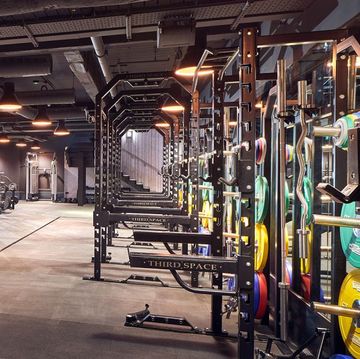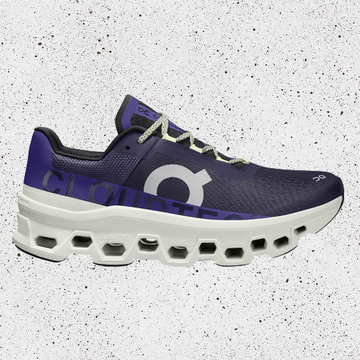Dear Luke,
My girlfriend bought me a Fitbit for my birthday to encourage my efforts to trim down for the summer. Between that and my iPhone, I’m now tracking so much data on myself when I work out, I’m starting to feel like a robot. How useful is data to keeping fit?
Yours,
Steve
Hi Steve
You’re right: data is absolutely everywhere in the fitness world at the moment, from wearable tech mapping your every move to biometric body scanners that tell you your body composition limb by limb to group exercise classes in which your performance is displayed on a big screen for all to see.
There are a lot of good things about this influx of technology into our fitness lives. We are task driven animals, and as humans we like having goals and knowing when we have achieved them. I use this fact with my clients – being able to qualify and quantify progress is a great way to motivate them. Being able to say you want to add 5kg to a bench press, take 5min off a 10k time or lower your resting heart rate by 5bpm is considerably more tangible than a vague intention to ‘get fit’ or ‘look better’.
At Third Space, data informs all that we do. We take accurate body composition measurements based on bio-electrical impedance - a state of the art way to allow us to be a little more prescriptive with training programs. In our group cycling program, Poweride, participants can accurately track their own output as well as compete against other members of the class. It's a lot of fun.
However, as with most things in life, you should aim to strike a balance. It's important to remember you're a human, not just a set of statistics. A Fitbit, Apple watch or InBody scanner don’t know about that work deadline you have for this Friday, that your two-year-old is teething or that your work drinks went on a little longer than expected last night. Life goes on, in spite of our best intentions of sticking to the plan.
If you’re working with a trainer, they should be sensitive to this. If you're setting your own goals according to the AI attached to your wrist, then remember to have some empathy towards yourself. One sub-par performance in the gym or a missed session altogether is no reason to throw in the proverbial towel.
Also, remember exercise is not a punitive sentence for indulgences. Your Sunday morning bacon sandwich doesn't have to be paid for by another half hour on the treadmill. Exercise, if looked at the right way, is - or should be - fun. Playing an impromptu, World Cup-inspired game of 5-a-side is something you should do for pleasure without worrying how it adds up towards your week’s training goals.
In short: data is great, but use it as another tool in your kit for a bit of motivation and guidance rather than let it rule your life. And buy your partner something nice. It sounds like she deserves it.
Got a question for Luke? Tweet us @EsquireUK using the hashtag #askaPT
Luke Worthington is an Elite Master Trainer and Trainer Educator at Third Space Group. He's also a former professional rugby player and a former world endurance record holder.













